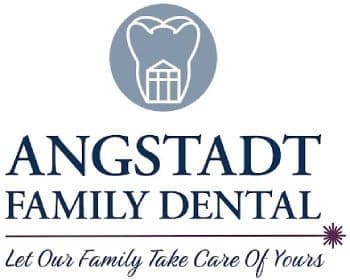
Regular dental visits are often associated with maintaining a bright smile and preventing cavities. However, their significance extends far beyond aesthetics and basic oral hygiene. Dentists play a pivotal role in the early detection of serious diseases affecting the head, neck, and mouth. Through routine examinations, dental professionals can identify early signs of various conditions, including cancers, potentially saving lives. At Angstadt Family Dental, we prioritize comprehensive dental health care to ensure our patients receive the most thorough screenings possible.
The Critical Role of Dental Examinations in Early Disease Detection
Dentists are uniquely positioned to detect abnormalities in the oral and maxillofacial regions. During regular check-ups, they assess not only the teeth and gums but also the entire oral cavity, head, and neck. This comprehensive evaluation enables the identification of unusual signs that may indicate systemic diseases or localized conditions requiring further investigation. Angstadt Family Dental is committed to utilizing the latest technology and expertise to catch these warning signs early.
Oral Cancer: A Silent Threat
One of the most significant conditions that can be detected during dental visits is oral cancer. According to the Centers for Disease Control and Prevention (CDC), oral diseases can cause pain and infections leading to problems with eating, speaking, and learning, affecting social interactions and job potential (cdc.gov). Regular dental examinations facilitate early detection of oral cancer, which is crucial for effective treatment and improved survival rates.
Head and Neck Cancers: The Broader Spectrum
Beyond oral cancer, regular dental visits can aid in the early detection of other head and neck cancers. A systematic review and meta-analysis published in the Journal of Dental Research found that individuals with irregular or infrequent dental visits had a higher incidence of head and neck cancers compared to those who attended regular check-ups. The study emphasized that routine dental examinations are associated with a decreased risk of these cancers, highlighting the importance of regular dental care (pubmed.ncbi.nlm.nih.gov).
Human Papillomavirus (HPV) and Oropharyngeal Cancer
The human papillomavirus (HPV) is a well-known risk factor for oropharyngeal cancers, which affect areas such as the base of the tongue and tonsils. HPV-related throat cancers have been on the rise, particularly among men. A recent article highlighted that men with multiple oral sex partners are significantly more likely to contract HPV-related throat cancer, which has now surpassed cervical cancer in prevalence in some regions (thetimes.co.uk). Regular dental visits can aid in the early detection of lesions or abnormalities associated with HPV, facilitating prompt intervention.
Subtle Signs Not to Ignore
Certain symptoms, often overlooked, can be indicative of serious conditions:
Persistent Mouth Ulcers or Sores: An ulcer that doesn’t heal within two weeks may signal oral cancer.
Loose Teeth: Unexplained tooth mobility can indicate underlying bone loss or tumors.
Numbness or Tingling: Unusual sensations in the mouth or lips may suggest nerve involvement.
Ear Pain: Chronic earache without infection could be referred pain from throat cancer.
Voice Changes: Hoarseness or voice alterations persisting over two weeks warrant evaluation.
Awareness of these signs and prompt dental consultations can lead to early diagnosis and better outcomes (nypost.com). At Angstadt Family Dental, our team is trained to recognize these symptoms and guide patients toward appropriate medical evaluations when necessary.
The Statistical Imperative for Regular Dental Check-Ups
The correlation between regular dental visits and reduced incidence of head and neck cancers is supported by compelling statistics. The previously mentioned meta-analysis reported that individuals who never or rarely visited the dentist had significantly higher odds of developing these cancers. Specifically, the odds ratio for developing head and neck cancers was 2.24 times higher for those with infrequent dental visits compared to regular attendees (pubmed.ncbi.nlm.nih.gov).
Final Thoughts: Prioritizing Dental Health as a Preventive Strategy
Regular dental visits are more than a measure for maintaining oral hygiene; they are a critical component of preventive healthcare. By facilitating the early detection of diseases affecting the head, neck, and mouth, routine dental examinations can lead to timely interventions, improved treatment outcomes, and enhanced quality of life. Prioritizing regular dental check-ups at Angstadt Family Dental is a proactive step toward safeguarding overall health and well-being. Schedule an appointment today at one of our four locations in Wyomissing, Downingtown, and Lancaster!

Leave a Reply